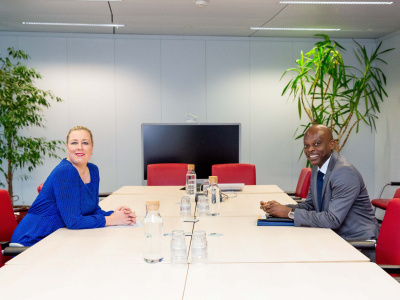
Editorial: The Multiple Dimensions of the Trade and Development Nexus
The 9th Ministerial conference of the World Trade Organization (WTO) in Bali on 3-6 December 2013 will once more attempt to push the trade and development nexus high on the international agenda. While increased trade flows and openness are no guarantee for development, they can, under certain conditions, provide a significant contribution to it. Trade policy, integrated with coherent economic, social and environmental policies, can become a key component of an economic transformation strategy for development. In doing so, private sector integration into regional and global value chains, when well harnessed to domestic production strategies, can play a critical role for diversification, job creation and equitable growth in developing countries.
But the way towards integrating trade approaches for development is far from straightforward. The challenge for developing countries is not simply to better integrate into global value chains per se, but to do so with higher value products, not just primary commodities and in fast-growing African countries, this is particularly important. This requires active and smart industrialisation strategies to improve business conditions and opportunities to purse greater domestic value addition.
In this context, trade policy cannot be seen in isolation, but as part of a broader agenda for domestic structural change. With a rapidly growing population, increasingly concentrated in urban areas, and a rising middle class, the potential for intra-African trade is also quickly expanding. The creation of effective regional markets is a clear priority. Yet, in spite of recent achievements, numerous trade barriers and lack of harmonisation in regional integration are hampering economic transformation in Africa, as underlined by the African Development Bank analysis.
What are the conditions under which regional and global trade can unleash their development potential? Which dimensions have to be taken into account? How does the regional and international agenda frame the trade benefits to developing countries? How to balance the interests and forces at play? Is the promotion of values, social norms and environmental standards a constraint or a boost to trade benefits? How can trade policy relate to broader reform dynamics? How can trade better be facilitated and financed? How to support trade policy reforms and capacity? How are new free trade initiatives among major world partners, such as the US and the EU, affecting African countries?
These are some of the aspects of the multi-faceted dimensions of the trade and development nexus addressed in this issue of GREAT Insights, from a range of perspectives and focus. While there is no one-fits-all recipe to connect trade to development objectives, many developing countries face common challenges. In a rapidly changing international environment, innovative thinking and approaches are more than ever needed to address the complex nexus of trade, economic transformation and development.
San Bilal is Head of the Economic Governance, and Trade and Regional Integration Programmes at ECDPM.


